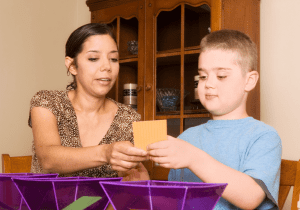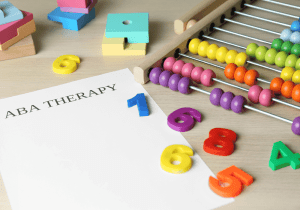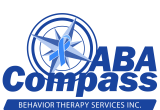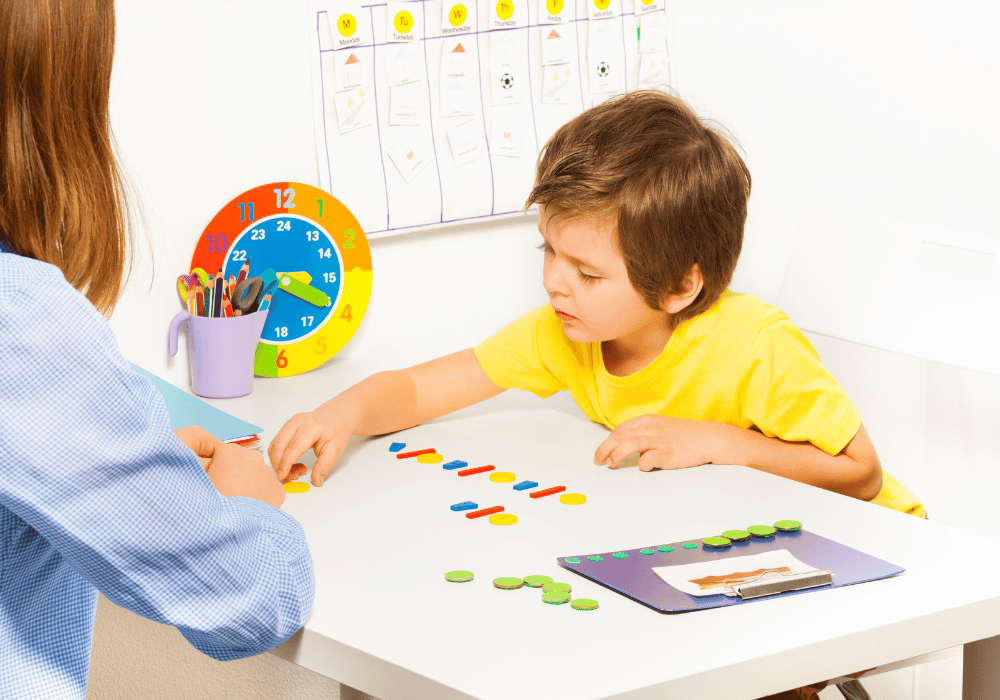If you’re looking for ways to improve your ABA therapy sessions, look no further! Here are 5 games that can be used to teach a variety of skills. From matching and sorting to following directions and learning new vocabulary, these games will help your children reach their full potential while also having fun.
Easy and Fun ABA Therapy Games
I Spy
 “I Spy” is a classic game that can be used to practice basic concepts in ABA therapy. This game will help strengthen associations, increase verbal skills, and teach other important objectives within the context of a fun and enjoyable experience. The core of the game is for one player to choose an object and say “I spy with my little eye something (color)”. The other players then guess what it is based on the clues provided. For example, if the object was an orange, the person might say “I spy with my little eye something orange.” After careful observation and comprehension of these simple directions, children are rewarded with success as they successfully guess the hidden object. Not only does this create positive reinforcement for desired behaviors, it also strengthens verbal communication in a fun and exciting way!
“I Spy” is a classic game that can be used to practice basic concepts in ABA therapy. This game will help strengthen associations, increase verbal skills, and teach other important objectives within the context of a fun and enjoyable experience. The core of the game is for one player to choose an object and say “I spy with my little eye something (color)”. The other players then guess what it is based on the clues provided. For example, if the object was an orange, the person might say “I spy with my little eye something orange.” After careful observation and comprehension of these simple directions, children are rewarded with success as they successfully guess the hidden object. Not only does this create positive reinforcement for desired behaviors, it also strengthens verbal communication in a fun and exciting way!
Simon Says
True to its name, “Simon Says” is a fun word-memorization game that teaches individuals in ABA Therapy how to respond with quick action based on verbal commands. It begins by having one player (usually the clinician) act as “Simon”, providing verbal cues like “Simon says, touch your toes” or “Simon says, clap your hands.” Like any other game of repetition and instruction following, participants are required to complete the task only if “Simon” has stated so. Performing motions or words without the cue can result in elimination from the game or consequences as decided by the therapist. The constant interaction between two people allows for learning experiences and developing a better understanding of what to do at certain times when prompted correctly, which proves very useful for practitioners in ABA therapy.
Match Up
Match Up is an easy yet effective sorting game for those involved in ABA Therapy sessions. Basically, this game involves sorting items into two different categories such as shapes, colors, or sizes. The therapist can set up a variety of objects on a table and show the client how to separate them by their similarities. For example, they may have to sort round items into one group and square items into another. This game helps children practice sorting skills as well as categorization which is important for problem-solving abilities in ABA therapy sessions and beyond!
Memory Game
 The Memory Game is an excellent way to help children build their memory power while having fun during an ABA therapy session. To play this game, the therapist places a certain number of cards face-down on a table with pictures or words printed on each card. Then, one student takes turns flipping two cards at once, trying to find a match. If they get a match, they can keep the cards and try to remember where the other matching card is located. This game helps children practice their focus, concentration, and memory skills in ABA therapy sessions.
The Memory Game is an excellent way to help children build their memory power while having fun during an ABA therapy session. To play this game, the therapist places a certain number of cards face-down on a table with pictures or words printed on each card. Then, one student takes turns flipping two cards at once, trying to find a match. If they get a match, they can keep the cards and try to remember where the other matching card is located. This game helps children practice their focus, concentration, and memory skills in ABA therapy sessions.
Play Dough Fun Set
Play Dough Fun Set is a great game for ABA therapy sessions that encourages creative thinking, problem-solving, and fine motor skills. To play this game, the therapist can provide different sets of play-doh of various shapes, sizes, and colors. Clients are then tasked with creating their own objects out of the material to create anything they can imagine. This encourages children to practice their creativity while also building hand-eye coordination and dexterity which is important in ABA therapy sessions.
These are just some of the many fun games that can be used to help individuals learn basic ABA concepts while reinforcing positive behaviors in a fun and engaging way! With these examples, you should now have an idea of how to use different games in your own therapy sessions for maximum effectiveness.


